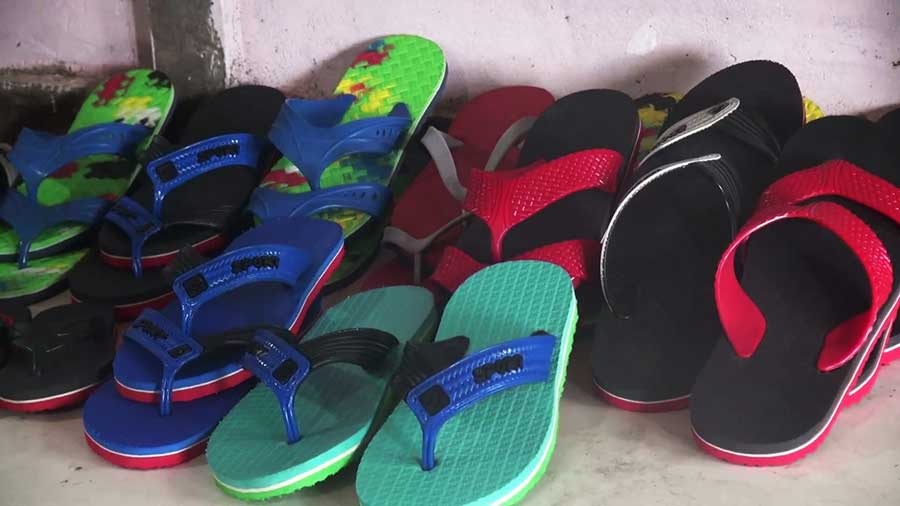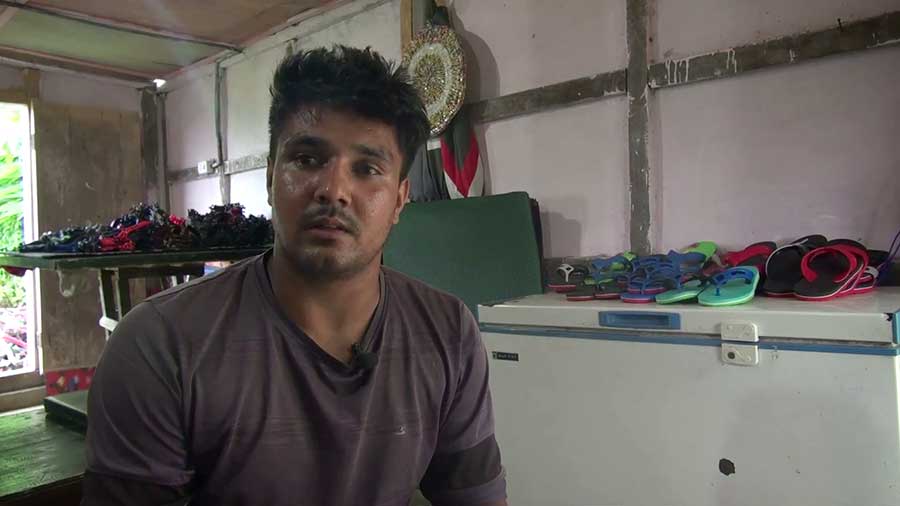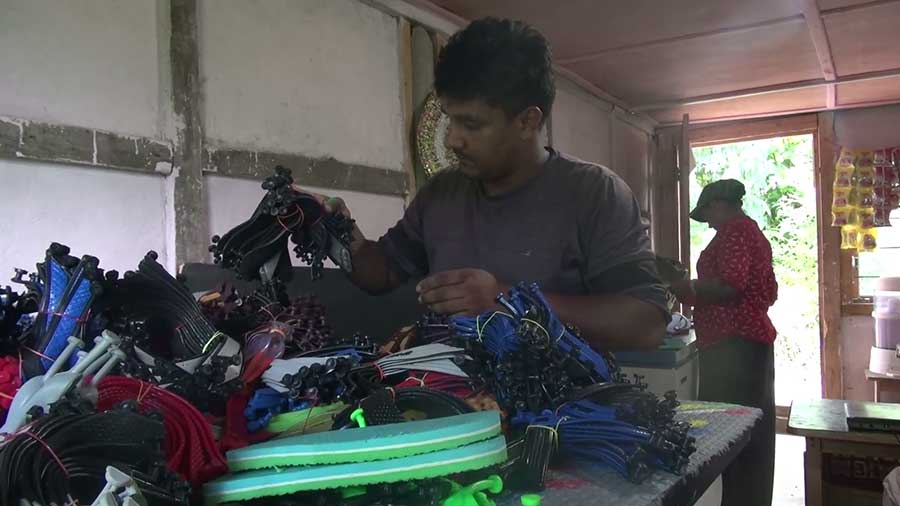
Long ago before Bhutan opened its doors to the outside world most necessities were produced at home. This includes the normal slippers that everyone at least owns a pair, today. It used to be called Teptem and was made at home from hides and local materials. The practice of self-producing is long gone, every single pair is now imported. However, a man in Tsirang started manufacturing slippers on a small scale recently as a pilot project. The slippers are already for sale in a few shops in Damphu and gewogs in the district.

Datta Ram Chamlagai’s mini slippers factory in Nyizergang of Kilkhorthang Gewog in Tsirang is the first of its kind in the country. The 25-year-old studied until class IX and picked the idea from the internet. And to convert his idea into reality he has undergone a short training in one of the footwear manufacturer firms in Guwahati in India earlier this month. He started the slipper firm immediately after returning home.
 He imports most of the materials to make slippers. The materials include rubber sheets for soles and ready-made straps. The simple process of making a pair of slippers takes only about three minutes. And his small machine easily fits into a small room.
He imports most of the materials to make slippers. The materials include rubber sheets for soles and ready-made straps. The simple process of making a pair of slippers takes only about three minutes. And his small machine easily fits into a small room.
“It is very easy to learn the art of making slippers if we concentrate well. We only get a monthly salary when we work in other’s companies. But we can gain experience as well as generate income when we own our own factory,” he said.
Datta Ram just started his business. It has just been eleven days manufacturing flip-flops. But he has already manufactured 250 pairs in six different sizes and all are sold. Currently, his slippers are sold at Nu 100-150 at promotional prices.
“Some people are a little sceptical when I say slippers are manufactured by myself in Tsirang. But I convince them that I have a mini slippers factory at home,” he added.
Datta Ram’s mini factory is a tiny step, but a step nonetheless, towards producing the basic needs within the country. He plans to register the business first with the economic affairs ministry and expand it further if the demand continues to favour him.
Pema Tshewang, Tsirang
Edited by Sonam





